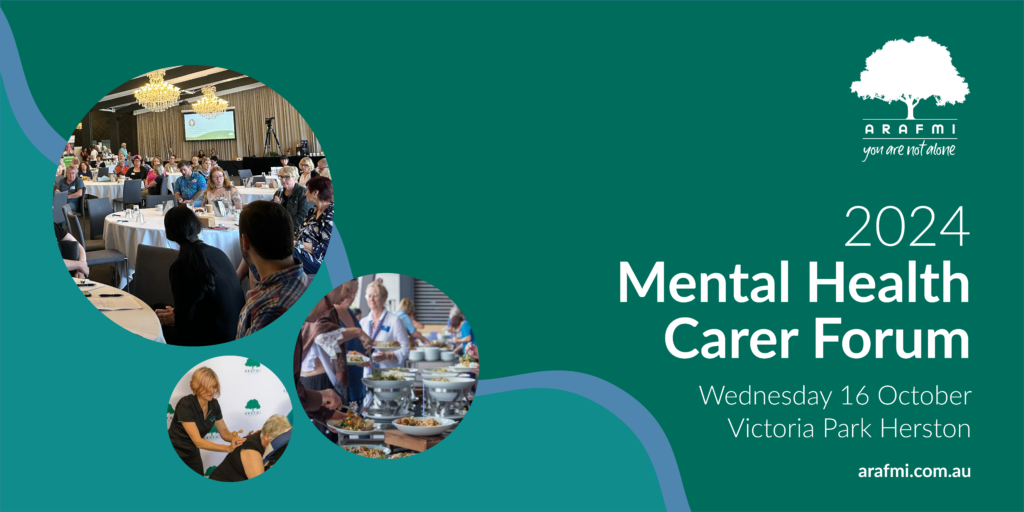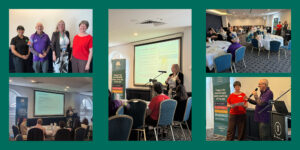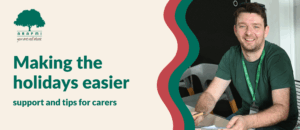Are you caring for someone experiencing mental ill-health? Want to meet others who are in the same situation, talk through the issues, challenges, explore some solutions and have some fun? Then come along to Arafmi’s free Mental Health Carer Forum.
The forum will be held during National Carers Week (13-19 October), a time to recognise, celebrate, and raise awareness about the 3 million Australians who provide care and support to family members or friends.
There are two ways to participate in the forum this year:
- Submit an Expression of Interest to attend in person at The Ballroom, Victoria Park, Herston
- Or watch online via YouTube.
You will have the opportunity to:
- Hear from key speakers including Brian Herd, Australia’s leading expert on law relating to older people and future planning; Shanon Cooper, a mental health carer with extensive experience in the human services sector; and Ivan Frkovic, Queensland’s Mental Health Commissioner.
- Learn how to use your Lived Experience as a mental health carer to advocate for policies and services that better support you and the person you care for.
- Engage in discussions with key representatives from mental health organisations on issues that matter to you.
- Discover the latest information about supports and services from various organisations.
- Enjoy a free gourmet lunch.
It promises to be a wonderful opportunity to connect with other carers in a fun and nurturing environment, including massages, laughter therapy, and a dance performance.
This is a free event for mental health carers.
When: 9:00am–3:00pm, Wednesday 16 October 2024
Where: The Ballroom Victoria Park, 309 Herston Road, Herston
RSVP: Please submit your Expression of Interest
If you require further information, please contact marketing@arafmi.com.au
Sponsored by




